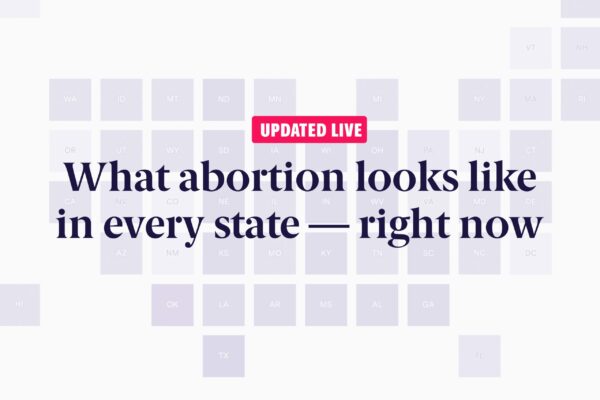Candice Norwood
Originally published by The 19th
The Department of Health and Human Services (HHS) on Monday clarified its guidance by explicitly stating that abortion can be considered a stabilizing treatment for pregnant people experiencing medical emergencies. The news comes three days after President Joe Biden issued an executive order, which mentioned updating emergency care guidance, in addition to expanding access to medication abortion and education about other legal abortion services.
The Biden administration’s move cites the federal Emergency Medical Treatment and Labor Act (EMTALA), which was passed by Congress in 1986, and requires all hospitals that offer emergency care services and accept Medicare and Medicaid provide a medical screening or treatment for an emergency medical condition, including active labor, regardless of a patient’s ability to pay.
In a letter to medical providers on Monday, HHS Secretary Xavier Becerra clarifies that under this law, abortion can be considered a stabilizing treatment in a medical emergency, and that this mandate supersedes any state abortion restrictions throughout the country. Other stabilizing treatments can include “removal of one or both fallopian tubes, anti-hypertensive therapy, methotrexate therapy,” the letter said.
“If a physician believes that a pregnant patient presenting at an emergency department, including certain labor and delivery departments, is experiencing an emergency medical condition as defined by EMTALA, and that abortion is the stabilizing treatment necessary to resolve that condition, the physician must provide that treatment,” Becerra wrote.
This guidance seeks to address one major point of concern for abortion providers and reproductive rights advocates fearful that state abortion bans will lead to a rise in deaths among pregnant people. Since the U.S. Supreme Court overturned the landmark 1973 abortion decision Roe v. Wade on June 24, eight states are enforcing total abortion bans, and three others are barring the procedure after six weeks of pregnancy, which is before many people know they are pregnant.
The wave of restrictions means pregnant people experiencing life-threatening conditions need to seek critical care in other states. This can require them to secure a last-minute flight or drive more than 10 hours to the nearest facility for a legal abortion.
Some state abortion restrictions allow for narrow exceptions to save the life of the pregnant person. The EMTALA protections would go beyond that: The law’s definition of an “emergency medical condition” includes “acute symptoms of sufficient severity” for which the absence of immediate medical attention would put the health of a pregnant person or their fetus in jeopardy, or cause serious impairment to bodily functions or organs. For a pregnant person experiencing contractions, EMTALA requires treatment if there is not sufficient time to transfer the pregnant person to another facility, or if a transfer would jeopardize the health of the parent or fetus.
One key aspect of the guidance is that it clearly states that EMTALA includes abortion services. Biden and his administration’s limited use of the specific word “abortion” have been a point of contention among abortion rights advocates. When Texas adopted a six-week abortion ban that took effect in September 2021, the federal Centers for Medicare & Medicaid Services (CMS) issued a memo in response that attempted to reinforce the authority of EMTALA but did not specifically state that abortion qualifies as a stabilizing treatment under the law.
-
The Latest:
“It’s kind of a big deal in this context,” Greer Donley, an assistant professor at the University of Pittsburgh Law School and an expert on reproductive health care, told The 19th. She added that avoiding explicit mention of abortion requires the administration to rely on “euphemism that is confusing people in a way that really matters.”
“So, updating the guidance, particularly to include the word abortion is actually quite important,” she said.
The clarified EMTALA guidance is an important step in supporting abortion access for vulnerable people, but challenges remain. EMTALA will only cover pregnant people experiencing a medical emergency as defined by the law. In 2020, an estimated 930,160 abortions were performed nationwide, according to data from the Guttmacher Institute, the leading policy organization tracking reproductive health and policy.
The law is also complaint-driven, which means that patients who believe their rights have been violated need to file a complaint before an investigation can begin into a hospital’s practices. Many people may not have the knowledge or resources available to file such complaints.
To better support patients, strong federal enforcement of the EMTALA guidance will be key, Donley said. “It’s one thing to issue a guidance document. It’s another thing to make it clear to hospitals and to providers that, ‘If you deny this care, and we find out about it, we will go after you.’ They have to understand that there’s legal risk in avoiding this treatment,” she said.
The administration can also help by making the complaint process more user-friendly and increasing public awareness about how to file complaints, Donley added. The updated EMTALA guidance is one piece of Biden’s executive order signed Friday that directs HHS to, within the next 30 days, “take additional action to protect and expand access to abortion care, including access to medication.” Experts previously told The 19th that the order provides little understanding about the specific actions the administration plans to take.
 Poli Alert Political & Civics
Poli Alert Political & Civics




